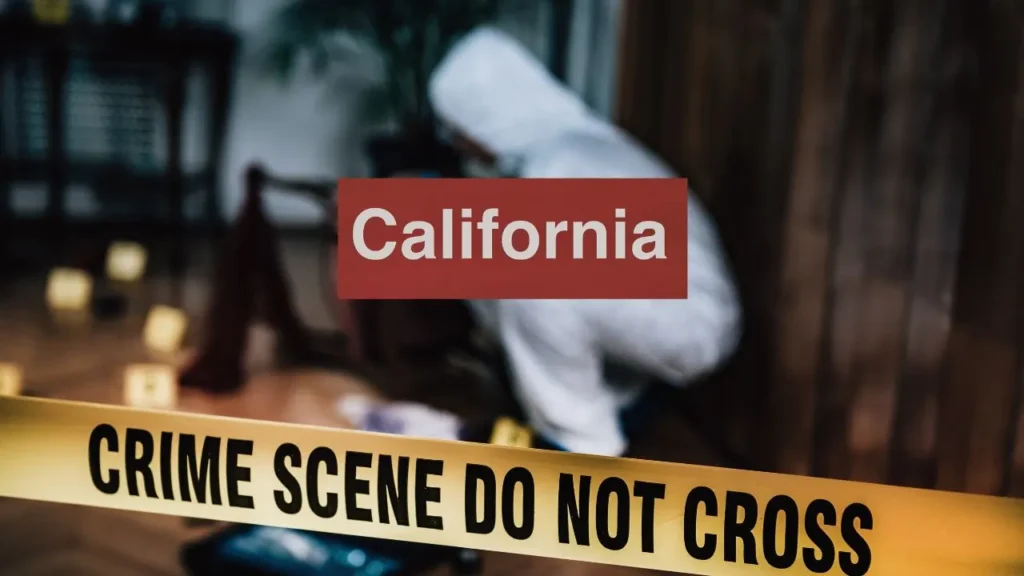What to Do Legally If You Witness a Violent Crime in California.Witnessing a violent crime can be shocking, frightening, and confusing. At that moment, you might not know what to do or how to react. Should you step in? Should you call the police right away? What if you’re scared for your own safety? These are natural questions.
In California, there are certain legal expectations and smart steps you can take if you ever find yourself in this situation. While the law doesn’t always force you to act, there are important ways you can respond to protect yourself and possibly help others without putting yourself in unnecessary danger.
Overview of What to Do Legally If You Witness a Violent Crime in California
| Article on | What to Do Legally If You Witness a Violent Crime in California |
| You witness a violent crime | You are not legally required to intervene physically. |
| Calling 911/reporting | You are encouraged but usually not legally required, unless you are directly involved or a mandated reporter. |
| If police ask you for information | You may be required to provide a statement if subpoenaed, but you have the right to remain silent initially. |
| Protecting yourself | You are never required to risk your safety. Your safety comes first. |
| Special roles (teachers, doctors, child care workers, etc.) | Mandated reporters must report crimes like child abuse or elder abuse by law. |
1. First Priority: Your Safety Comes First
If you see a violent crime happening, your number one job is to keep yourself safe.
- Do not interfere physically unless you are trained and absolutely sure it is safe.
- Move away from the danger zone. Find shelter, lock a door, or distance yourself.
- Remember that the law does not expect you to play hero.
2. Call 911 — The Safest and Smartest Step
The most important action you can take is contacting law enforcement.
- Dial 911 as soon as you are safe and enough to do so.
- Give clear, calm details such as location, description of the people who are involved in the incident, and what is happening.
- Do not guess much, just report what you actually saw or heard about the incident.
3. Understand Your Legal Duties (and Limits)
California law does not generally require bystanders to act when they see a violent crime. Unlike some European countries, there is no broad “duty to rescue.”

- Mandated reporters: Teachers, doctors, nurses, social workers, and some other professionals must report crimes like child abuse, domestic violence (in certain cases), and elder abuse.
- If you are involved: If you were part of the situation such as a driver in an accident that turned violent, you may have reporting obligations.
- If subpoenaed: If the case goes to trial and you are called as a witness, you may be legally required to testify.
4. Giving a Statement to Police
After you report the crime, police may want your statement. Here is what you should know about it:
- You have the right to remain silent until you feel comfortable or consult with a lawyer.
- If you do provide a statement, stick to facts only. Don’t speculate or assume.
- You can request to give your statement later if you are confused.
5. Testifying in Court
If the crime goes to trial, you might be asked to testify.
- A subpoena is a legal order that requires you to appear in court.
- If you ignore a subpoena, you could face penalties as well.
- In court, you are only required to share what you truthfully saw or heard.
6. Protecting Yourself Afterwards
Being a witness can bring emotional stress, and sometimes concern for your own safety. Here is the tips what you can do:
- Ask about witness protection programs if you feel at risk. California has resources to protect witnesses in serious cases.
- Seek counseling or support groups if the experience leaves you confused or afraid.
- Stay anonymous if possible as in some cases, you can report anonymously such as Crime Stoppers.
7. What Not to Do
It is just as important to know what you should not do:
- Don’t chase the suspect — leave that to the police.
- Don’t post details on social media, which could interfere with investigations.
- Don’t try to “investigate” on your own.
8. Why Your Role Matters
Even if California law does not force you to interfere in it, witnesses are often the key to justice. Victims might not be able to report what happened, and suspects could walk free without credible witnesses. By safely reporting what you saw, you are helping your community and supporting the legal system.
Conclusion
Witnessing a violent crime in California can feel overwhelming, but you don’t have to be a superhero to do the right thing. Protect yourself first, call 911, and cooperate with authorities if you are comfortable. You are not legally required to risk your life or jump into the situation, but your decision to report what you saw could make a huge difference for the victim, the community, and the pursuit of justice.
| Home Page | https://sbbarristers.com/ |
FAQs for What to Do Legally If You Witness a Violent Crime in California
Ques.1. Can I get in trouble if I don’t intervene?
No, as there is no requirement of physically stepping in or risking your safety.
Ques.2. What if I call 911 and I’m wrong about what I saw?
You won’t get in trouble if you call in good faith, even if the situation turns out differently.
